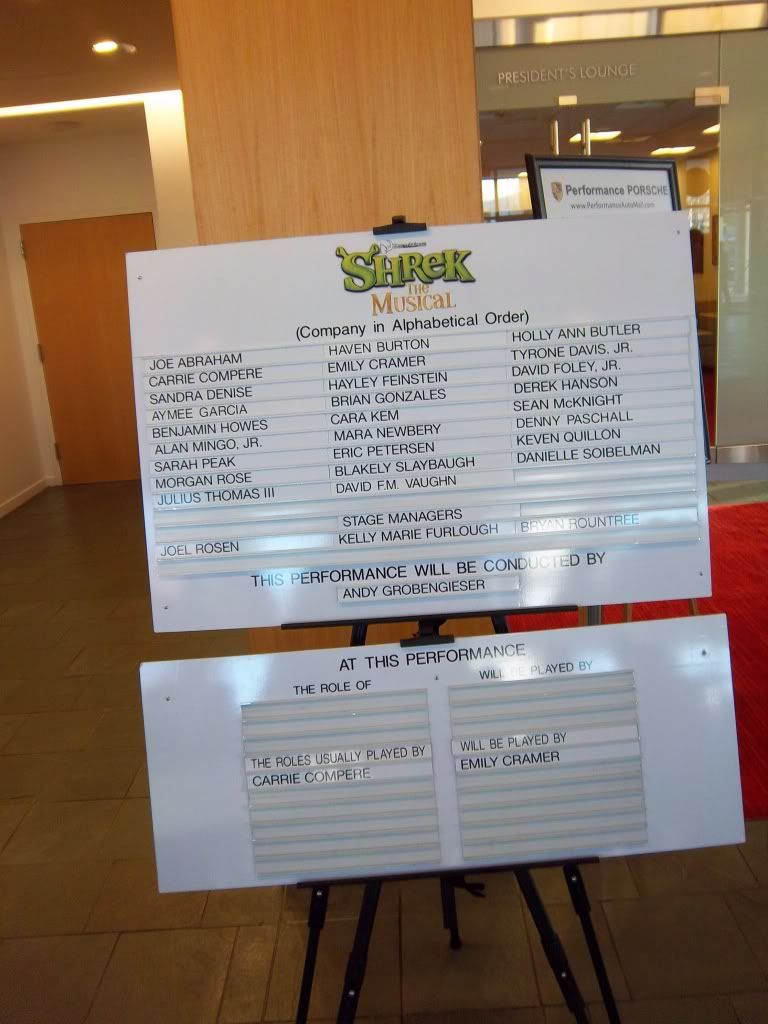Now that I’ve seen a few plays at Triad Stage in Greensboro, there are a few things I’ve come to expect, and I’ve yet to be disappointed. This past weekend, I saw Steel Magnolias at Triad. I have to admit, I was a little iffy about this one before I saw it. I personally disdain anything in the “tearjerker” genre – I cry at Hallmark commercials. No one needs to see me weep in public. I like dark stuff, but not sappy. I’ll admit – I was worried. I won’t make you suffer until the end to find out that I did enjoy the production. I even challenged myself to not cry. I will, however, make you wait until the end to find out if I rose to my own challenge.
One of the things I’ve come to expect from Triad Stage is killer set design. I love their sets. Especially with the way they have their seating is arranged, the set design is key. I loved how it immediately felt like a carport-turned-salon, the moment I walked in. I really appreciated the tiniest details, like that the “grass” was brown where people would have been walking on it up to the door. They really thought of all the tiny details that make a set seem real.
Another thing I’ve come to expect is the use of real, working sets and props. I’ve said it before, and I’ll say it again: it really does make a difference when water comes out of the sink, there’s actual coffee in the coffee pot, and real sugar in those packets. It sounds trivial, but, trust me, it’s important.
My season tickets are for the Sunday matinees which include the InSight talkbacks. I’ve found this to be critically important to my theatergoing experience at triad. I love the people they bring in to do the talkbacks, and my appreciation for each work grows exponentially from attending. This time was, of course, no exception. I enjoyed the production, but the talkback helped me understand it on another level. I really miss my college English courses, just sitting around and talking about theory and different works, and these talkbacks are my “college fix.” It is so beneficial for an audience to be able to reflect on what they’ve just seen, and to listen to the reflections of others – both from scholars and fellow audience members.
I’m not a native southerner, and I’m not your typical twenty-five year old woman. I have no plans for marriage, and having children (at least in the next ten years or so) is the exact opposite of what I want in my life. Perhaps because of this, I had some trouble relating to Shelby, the character in the show closest to my age. I found myself relating more to the other characters in the show, the salon ladies, maybe because they remind me of my mother. Somewhere around intermission, I realized that there are many more ways to relate to a show than based on the age of the characters, and that it was okay for me to relate to Ouiser more than Shelby. Once freed from this struggle, I was able to relax a little bit more, and realize that the show, while technically about Shelby, is really about these women who care about her.
So, did I cry? Only a little. I was able to keep myself from outright weeping. Thank goodness for that, otherwise the box office would be getting a lot of complaints about audience behavior – I’m a loud crier. I did shed a few tears, however. I was most touched by Ouiser and her reaction to tragedy. Did I meet my own challenge? You decide.
